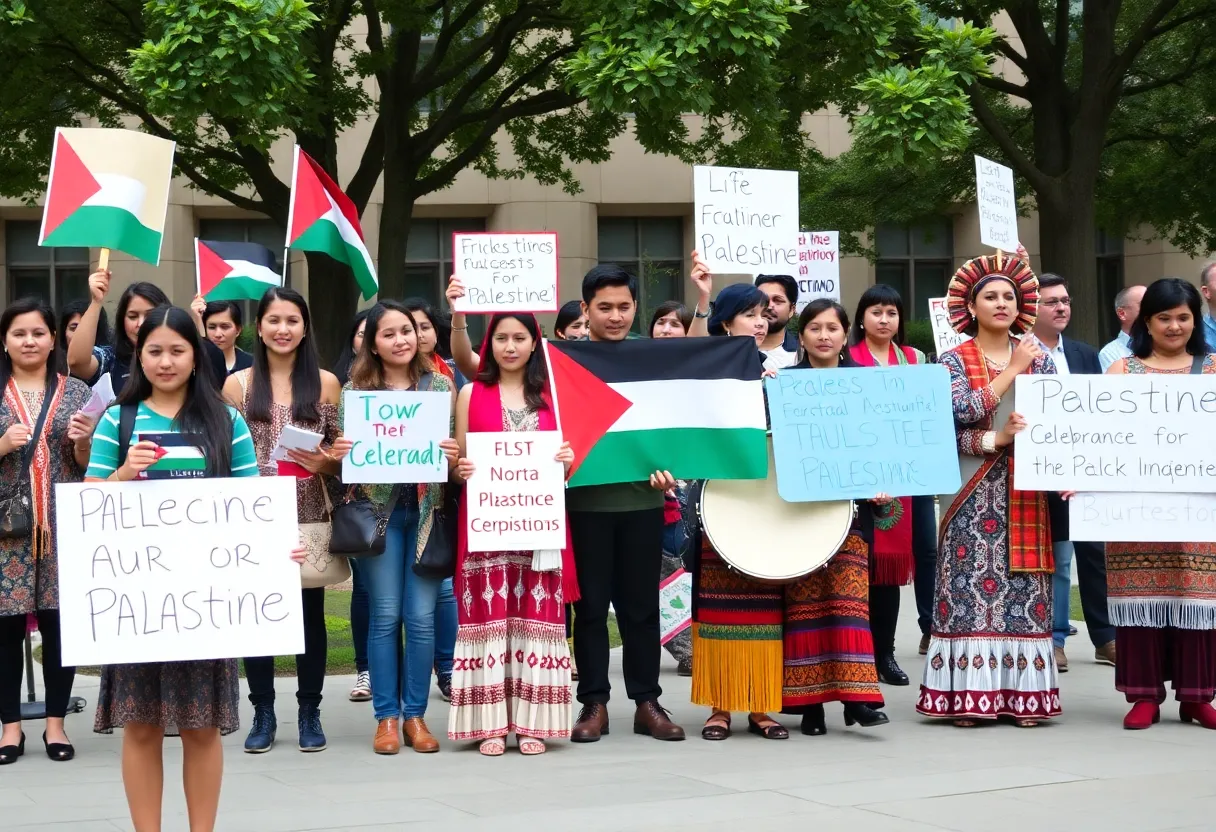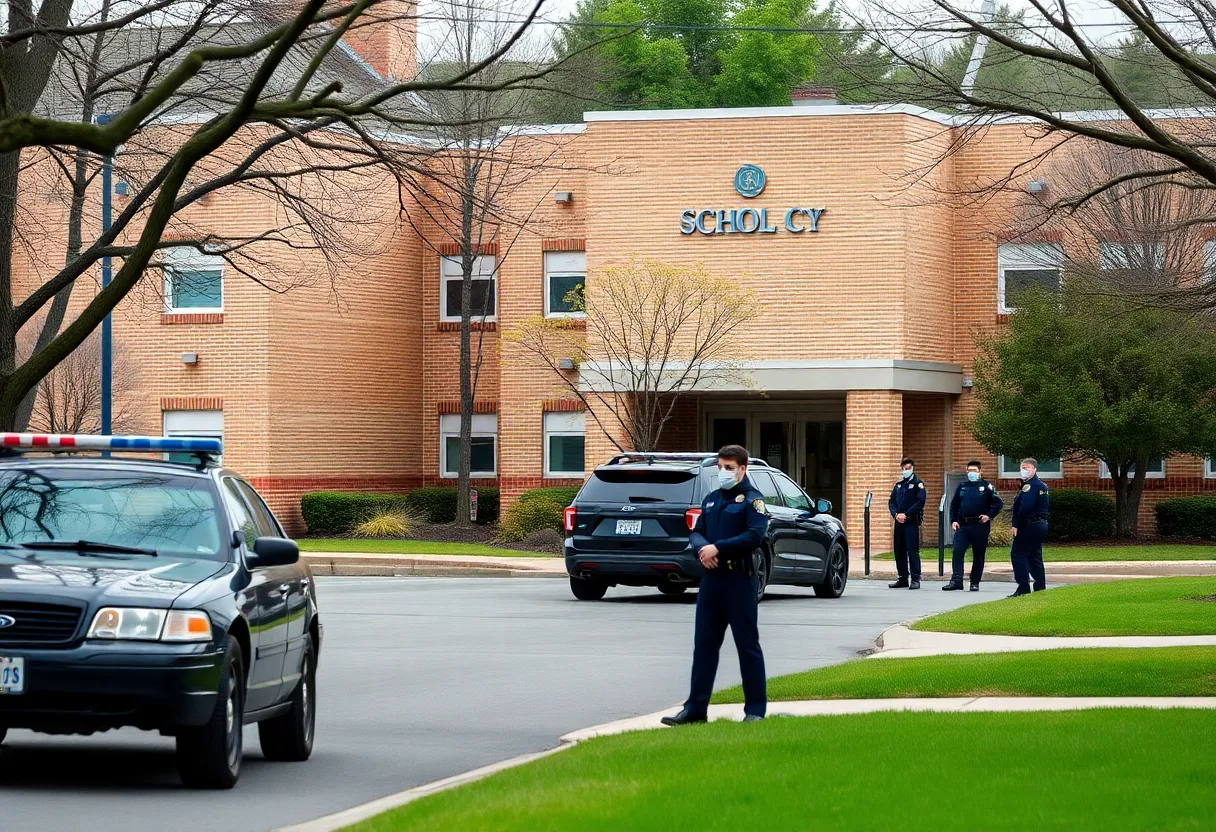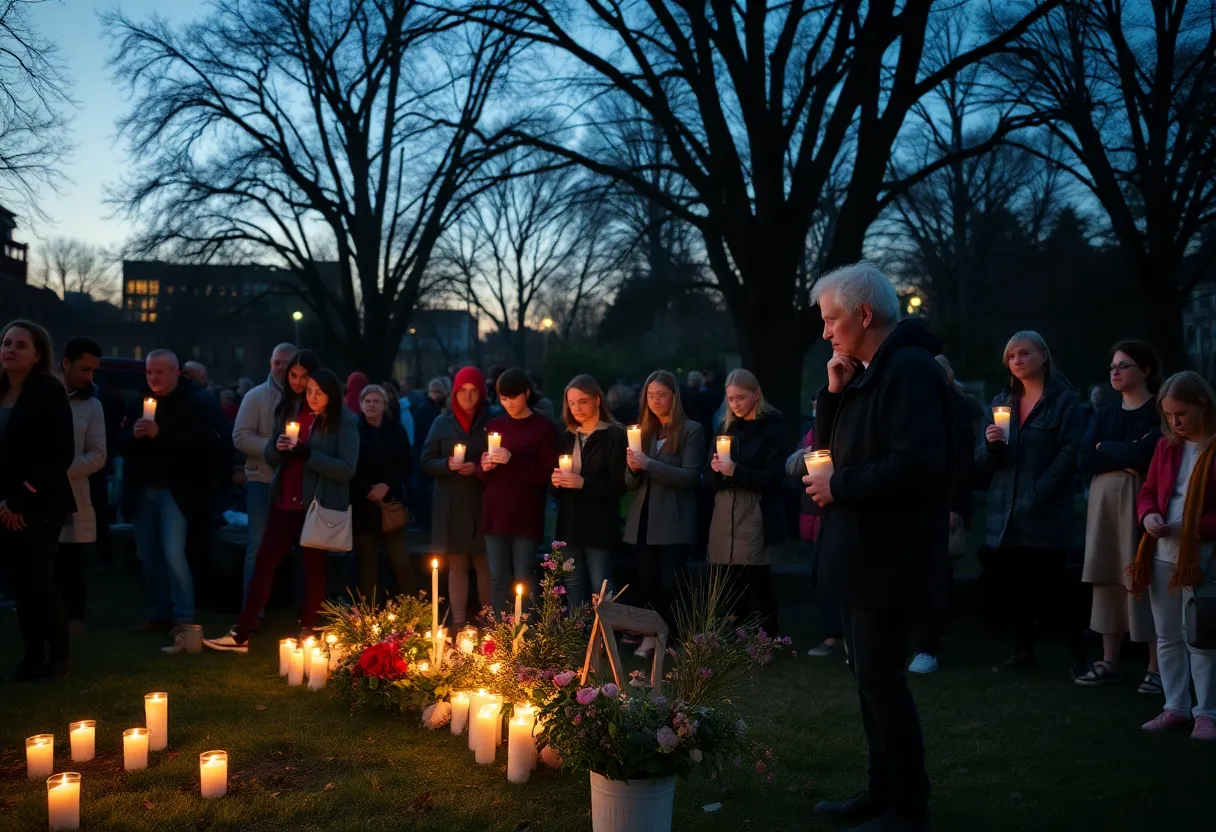News Summary
Over 50 students gathered at Tufts University for an emergency protest advocating Palestinian liberation, coinciding with a celebration for Indigenous Peoples’ Day. The event, organized by various student groups, highlighted the need for social justice amidst the ongoing crisis in Gaza while also honoring Indigenous cultures. Students expressed solidarity through protests and a vibrant celebration featuring music, dance, and local vendors. This dual focus on humanitarian issues demonstrates the commitment of the university community to champion social justice locally and globally.
Students Stand United for Palestine and Celebrate Indigenous Peoples’ Day
This past Friday, more than 50 passionate students gathered on the lower patio of the Mayer Campus Center for an “emergency protest for Palestine,” organized by the Coalition for Palestinian Liberation at Tufts (CPLT). The protest aimed to reignite the campaign for Tufts University to divest from the Israeli occupation and apartheid, highlighting the urgent need for action amid the ongoing crisis.
As protesters marched past Gifford House, the home of University President Sunil Kumar, they chanted phrases that demanded accountability, signaling that life on campus cannot simply resume as usual while institutions like Gaza’s universities suffer destruction due to the Israeli assault. The CPLT reiterated the Palestinian people’s internationally recognized right to resist occupation and reminded those present of the historical violence and dispossession that began with the establishment of Israel in 1948.
Students were strongly encouraged to take a moral stance against the university’s investments tied to Israeli apartheid. One speaker made a heartfelt connection to the historical solidarity between Lebanon and Palestine, sharing personal stories of loss and the importance of honoring those sacrifices. Concerns about protester safety were also raised, particularly in light of recent incidents on U.S. campuses, which have sparked discussions about the risks involved in demonstrating for various causes.
In a notable mention, students pointed out a recent ruling by the International Court of Justice, which called for Israel to prevent genocidal acts in Gaza. However, they acknowledged the limitation of such rulings, given that enforcement typically lacks the necessary authority.
Later, Tufts’ Students for Justice in Palestine hosted an event focused on discussing media bias in the coverage of Palestine, linking the protest’s sentiments to broader global narratives and understanding.
Indigenous Peoples’ Day: A Celebration of Resilience
In addition to the protest for Palestine, the Indigenous Students Organization at Tufts University (ISOT) celebrated Indigenous Peoples’ Day with a vibrant event that embodied cultural richness. This celebration featured indigenous music, dancing, speakers, and a variety of food vendors who proudly showcased their culinary heritage. Venessa John, a student from the Choctaw Nation of Oklahoma, organized this event, underscoring the importance of banding together in support of Indigenous peoples and issues worldwide.
The event included eye-catching posters with QR codes that encouraged attendees to donate to various global causes, including Palestine. With approximately 20 vendors selling handmade Indigenous products, attendees had a chance to explore and support Indigenous entrepreneurship while benefiting from the atmosphere of unity.
Tufts University has a history of recognition in this regard, officially changing the name from Columbus Day to Indigenous Peoples’ Day in 2016 due to student advocacy efforts. This change has come as part of a wider movement to acknowledge the history and ongoing struggles of Native American communities, contrasting sharply with the now outdated federal observance of Columbus Day.
The day was filled with a strong message of land acknowledgment and highlighted the persistent impacts of colonialism on Indigenous communities, drawing parallels with the plight of Palestinians.
Fashion as an Act of Resistance
Adding to the festivities, the SAPAC-hosted “Resistance” fashion show showcased over ten student organizations from the People of Color (POC) community, reflecting the diverse cultural expressions present on campus. With themes of resistance woven into the fabric of the show, students wore culturally significant garments that not only celebrated their heritage but also served as a powerful statement against cultural appropriation and colonial narratives.
The fashion event aimed to build community and empower students, ensuring that the narratives attached to their clothing and identities could shine through amidst larger conversations surrounding solidarity and activism.
With these significant gatherings and events on campus, Tufts University continues to foster an environment that champions social justice and awareness, encouraging students to stand together for causes that matter not just locally, but globally. Whether it’s the fight for Palestinian liberation or the celebration of Indigenous cultures, students are making their voices heard loud and clear.
Deeper Dive: News & Info About This Topic
- Tufts Daily: Coalition for Palestinian Liberation Holds Emergency Protest for Palestine
- Wikipedia: International Court of Justice
- The Beacon: Community Members Honor Indigenous Peoples’ Day with Celebration of Culture, Solidarity, and Resistance
- Google Search: Palestinian liberation
- Tufts Daily: SAPAC Resistance Show Uses Fashion as a Medium of POC Expression and Empowerment
- Google Scholar: Indigenous Peoples’ Day
- ABC News: 150 Arrested at New York University Amid Pro-Palestinian Demonstrations
- Encyclopedia Britannica: Cultural Appropriation








